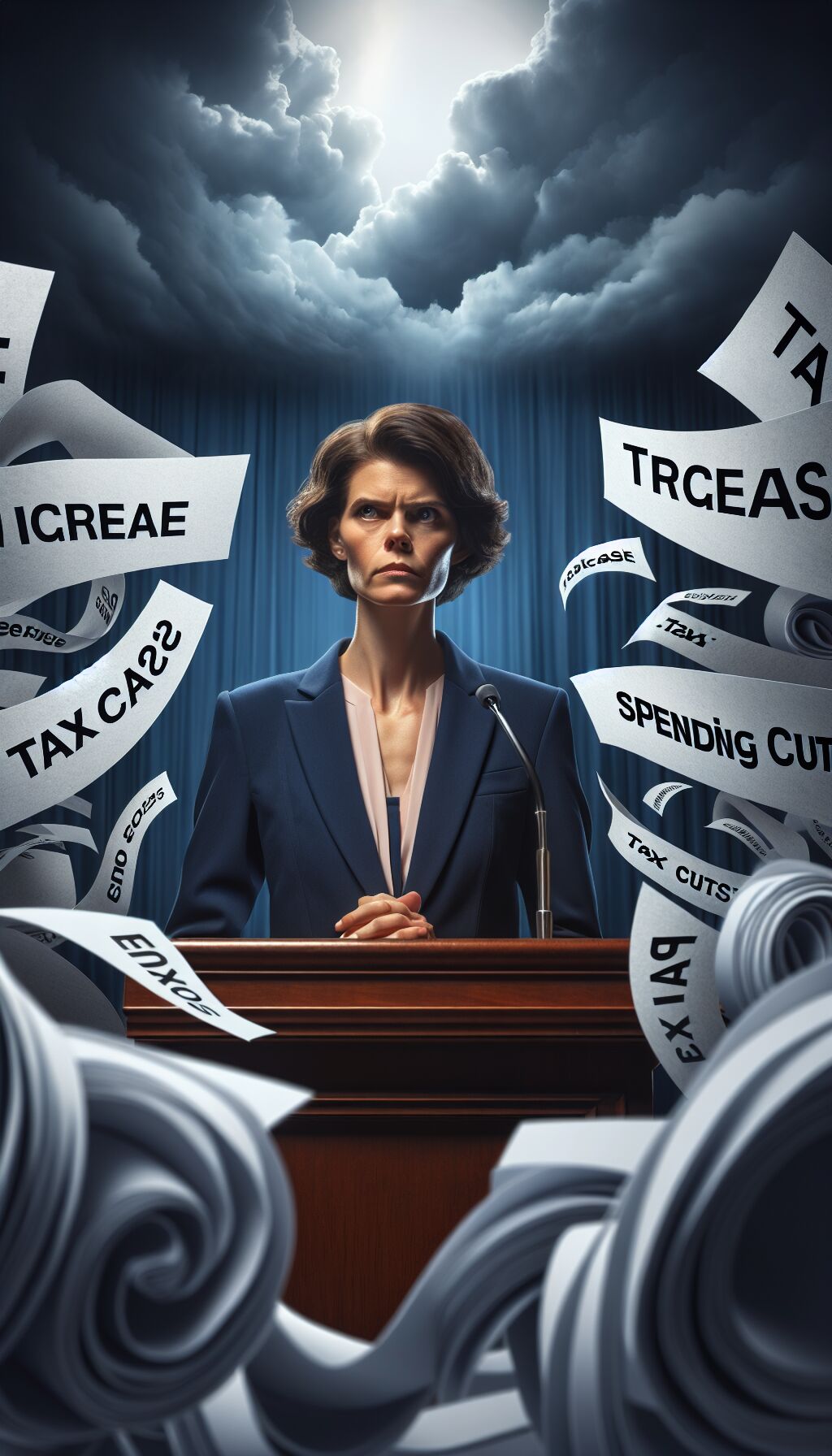Chancellor Rachel Reeves Faces Tough Fiscal Decisions
By Henry Zeffman
The Broader Economic Context
The economic landscape in the United Kingdom is currently marked by uncertainty, with inflation rates soaring, energy costs spiking, and public debt looming large. As the Chancellor of the Exchequer, Rachel Reeves is acutely aware that her upcoming fiscal strategies will not only influence economic stability but also impact millions of citizens across the nation. With general elections on the horizon, the stakes are higher than ever.
Tax Increases vs. Spending Cuts
As Reeves prepares for her next budget announcement, she is caught in a dilemma: whether to increase taxes or cut government spending. Both options come with their own sets of challenges and consequences. Tax increases can bolster public finances but often lead to public dissent and economic slowdown. Conversely, spending cuts can streamline financial resources but may adversely affect critical services that citizens rely on.
Tax Increase Considerations
Proponents of raising taxes often argue that it is essential for protecting and enhancing public services, especially in times of economic distress. Increased tax revenue could fund much-needed health services, education, and infrastructure projects that foster long-term growth. However, raising taxes typically involves political risks. Public resistance to higher taxes could erode trust in the government, especially if citizens feel their financial burdens are already too high.
Spending Reductions and Their Implications
On the other hand, spending reductions are frequently viewed as a necessary evil in tightening fiscal conditions. By re-evaluating expenditures, the government can redirect funds toward more pressing priorities. Yet, this approach risks cutting vital services that many citizens depend on, including social services and public safety. Austerity measures in the past have been met with widespread criticism, leading to public protests and unrest. The question remains: how will Reeves balance these competing interests?
Public Sentiment and Political Fallout
Public sentiment is shifting, and Reeves must take the pulse of the electorate. Recent polling indicates that many citizens are feeling the pinch of rising costs and are wary of any proposals to raise taxes. Simultaneously, there’s an understanding that slashing services might have dire consequences, particularly for vulnerable populations. Striking a balance will be essential for Reeves if she hopes to maintain public support heading into the elections.
Historical Precedents
The history of British finance reveals that both tax increases and spending cuts can have long-lasting impacts on governance and public trust. For instance, the austerity measures implemented post-2008 financial crisis have been criticized for exacerbating social inequalities. Conversely, previous governments have found themselves in difficult positions after rolling out aggressive tax reforms, which ultimately led to political backlash.
Chancellor’s Insights and Strategies
Rachel Reeves has been clear in her communications about the necessity for sound fiscal management. Her first major challenge will be communicating her decisions effectively to a public that is understandably anxious about economic stability. The Chancellor will need to present a convincing narrative that underscores the importance of any proposed fiscal adjustments, whether through increased taxation or reduced spending.
Leveraging Economic Growth
One potential avenue for Reeves is focusing on stimulating economic growth as a means to alleviate the burden on both taxpayers and welfare systems. If the economy can be revived, increased revenues from sustained economic activity might reduce the immediate need for either tax hikes or spending cuts. This approach would necessitate strategic investments in innovation, technology, and sustainable industries.
Expert Opinions and Economic Forecasts
Economists are closely monitoring the situation and have varying opinions on the optimal path forward. Some advocate for a balanced approach—considering both tax adjustments and targeted spending cuts in sectors where efficiency can be improved without crippling service quality. Others warn against any drastic moves that could stifle an already nascent recovery. As Reeves weighs her options, expert insights will play a critical role in shaping her strategies.
Calls for a Holistic Approach
There are increasing calls for a holistic approach to public finance—a strategy that acknowledges the interconnectedness of taxation and spending. Addressing systemic issues such as tax loopholes and underfunded services could provide Reeves with additional tools without alienating the electorate. Reaching out to stakeholders from various sectors can also foster a more unified national dialogue on fiscal responsibility.
The Road Ahead for the Chancellor
The road ahead is fraught with challenges, yet it also offers a chance for innovation in economic policy. As Rachel Reeves navigates this complex landscape, her decisions will not only shape the immediate fiscal environment but also define her legacy as Chancellor. The choices she makes will resonate throughout the country, potentially setting the stage for the next general election and determining the trajectory of the UK’s recovery.
The balancing act demands not only fiscal acumen but also political savvy. As citizens watch closely, the Chancellor’s next steps will require transparency and an ability to unite diverse opinions within the government and the public sphere. Whatever decisions are ultimately made, they will shape the future of the UK’s economic landscape.












